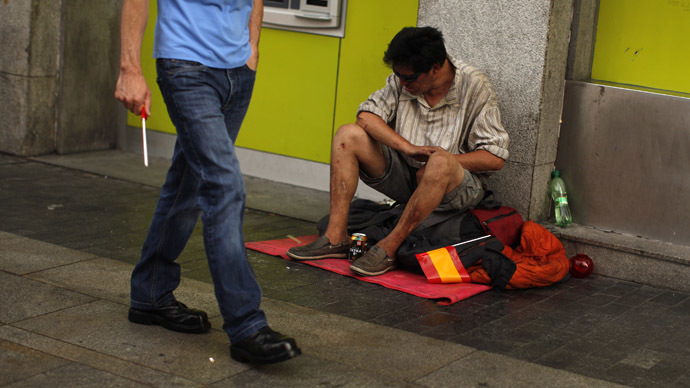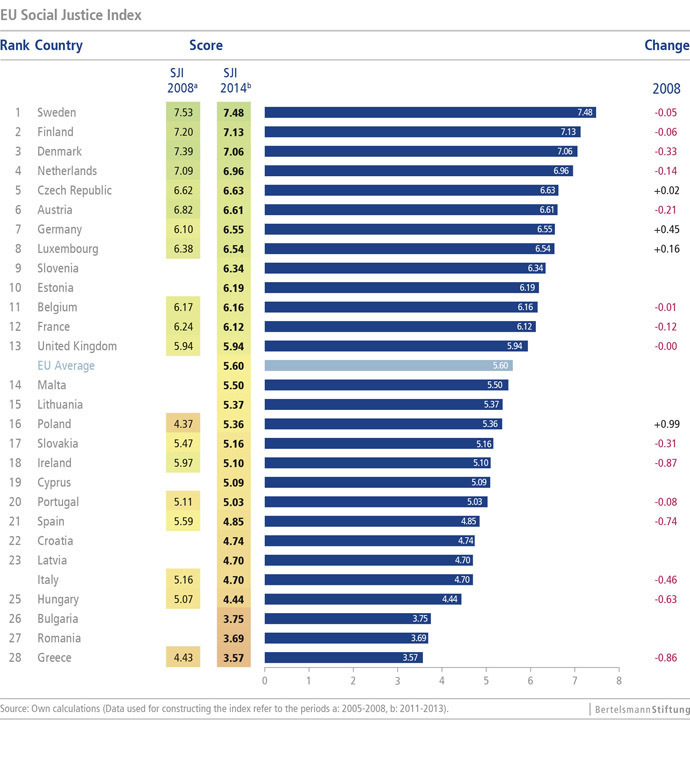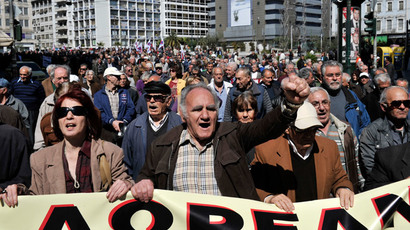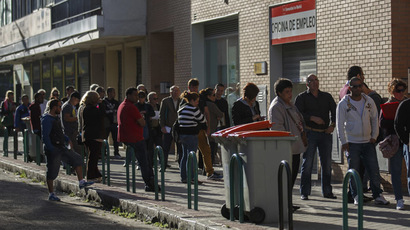Social injustice index ‘highly explosive’ in Europe – report

The level of social injustice has increased in most EU countries in recent years, and the severe austerity policies haven’t done much to stabilize the situation, according to a new report by the German Bertelsmann Stiftung Foundation.
The study, published on Monday, found there is an "enormous discrepancy" in social justice across the 28 EU members.
The best performing overall were Sweden, Finland, Denmark, and the Netherlands and falling below average were Malta, Lithuania, Poland, Slovakia, Ireland, Cyprus, Portugal, Spain, Croatia, Latvia, Italy, Hungary, Bulgaria, Romania, and Greece.
The report lauds the effort of post-communist states Poland, the Czech Republic, Slovenia, and Estonia for ranking above average on the overall index, which is based on 35 separate criteria related to health, employment, education, poverty, and social factors such as discrimination.

Results “suggest that the rigid austerity policies pursued during the crisis and the structural reforms aimed at economic and budgetary stabilization have had, in most countries, negative effects with regard to social justice,” the report said.
One example of negative social justice is unemployment, which varies widely across the continent. The average unemployment rate in the eurozone is 12 percent, yet Greece suffers from an unemployment rate of 27.8 percent whereas Austria only has a 5.0 percent rate.
“This is a highly explosive situation with regard to societal cohesion and social stability within the European Union,” the report says.
In post-crisis Europe, northern countries have prospered while growth has stalled in the Mediterranean - namely Greece, Portugal, Spain, and Italy.
“The gap between participation opportunities in the still-wealthy countries of northern Europe and in the crisis-struck southern nations has thus significantly increased,” the report reads.
Youth unemployment also highlights the stark contrast in recovery. Joblessness among people aged 15-24 has climbed to record highs, especially in Southern Europe - in Greece almost 60 percent of young people are unemployed. Even more developed economies like Sweden and Finland haven’t found the right formula in fighting youth unemployment. In Sweden 23.5 percent of youngsters are unemployed and 19.9 percent in Finland.
Across the EU, 28 per cent of children and young people are threatened by poverty or social exclusion, the report said.
Overall, labor opportunities have deteriorated in EU member states as a result of the financial crisis. As a political bloc, they are likely to miss their declared 2020 targets to reach 75 percent employment rates.
A solution “requires EU-wide awareness of the problems of currently unsustainable and growing inequalities within the EU,” Bertelsmann Stiftung concludes.














